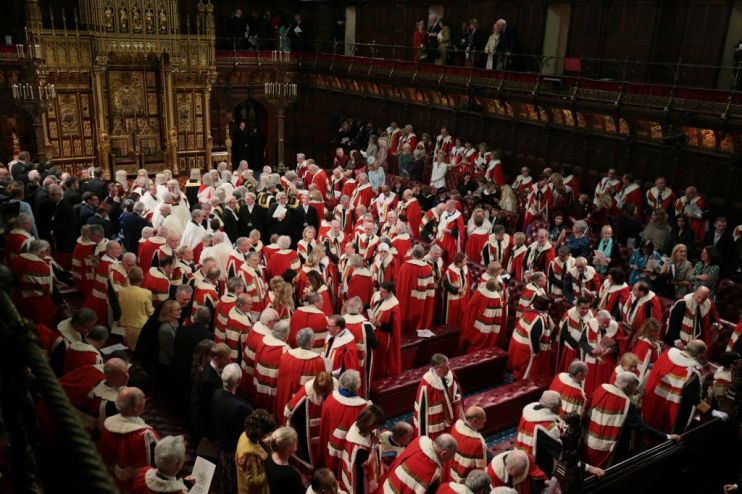Peers push back on Brexit bill in largely symbolic move

The House of Lords has voted against Boris Johnson’s Internal Market Bill, which seeks to breach the Brexit withdrawal treaty if the UK does not get a trade deal with the EU.
The Lords approved a motion to regret the bill on the grounds that it “would undermine the rule of law and damage the reputation of the United Kingdom”.
The bill will not be affected by the Lords vote, with a regret motion only giving “members an opportunity to put on record their dissent”, according to parliamentary protocol.
The bill would override some elements of the Brexit Withdrawal Agreement, as it pertains to Northern Ireland, and would therefore break international law.
Johnson has said the bill is necessary to ensure the free flow of goods between Great Britain and Northern Ireland in the event no trade deal gets secured by 31 December.
Northern Ireland will remain in a customs union with the EU after 31 December, while the rest of the UK will not.
The EU has denounced the UK for introducing the bill and has begun formal legal proceedings against the British government.
Before the Open newsletter: Start your day with the City View podcast and key market data
Former chief justice Igor Judge introduced the regret motion in the House of Lords today.
“When those responsible for making the law – that is, us the parliament, we the lawmakers, who expect people to obey the laws we make – knowingly grant power to the executive to break the law, that incursion is not small,” he said.
“The rule of law is not merely undermined, it is subverted.
“There is one consequence, and the damage is to our standing in the world. We have no real power now, except soft power – the English language and an understanding that we in this country have a traditional belief in the rule of law and we respect it.”